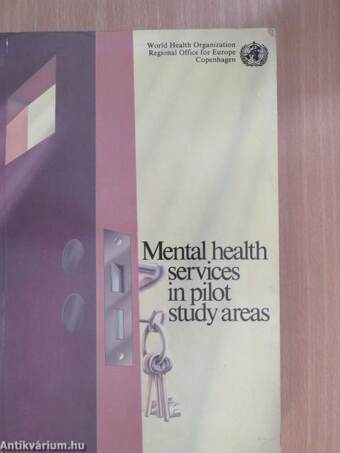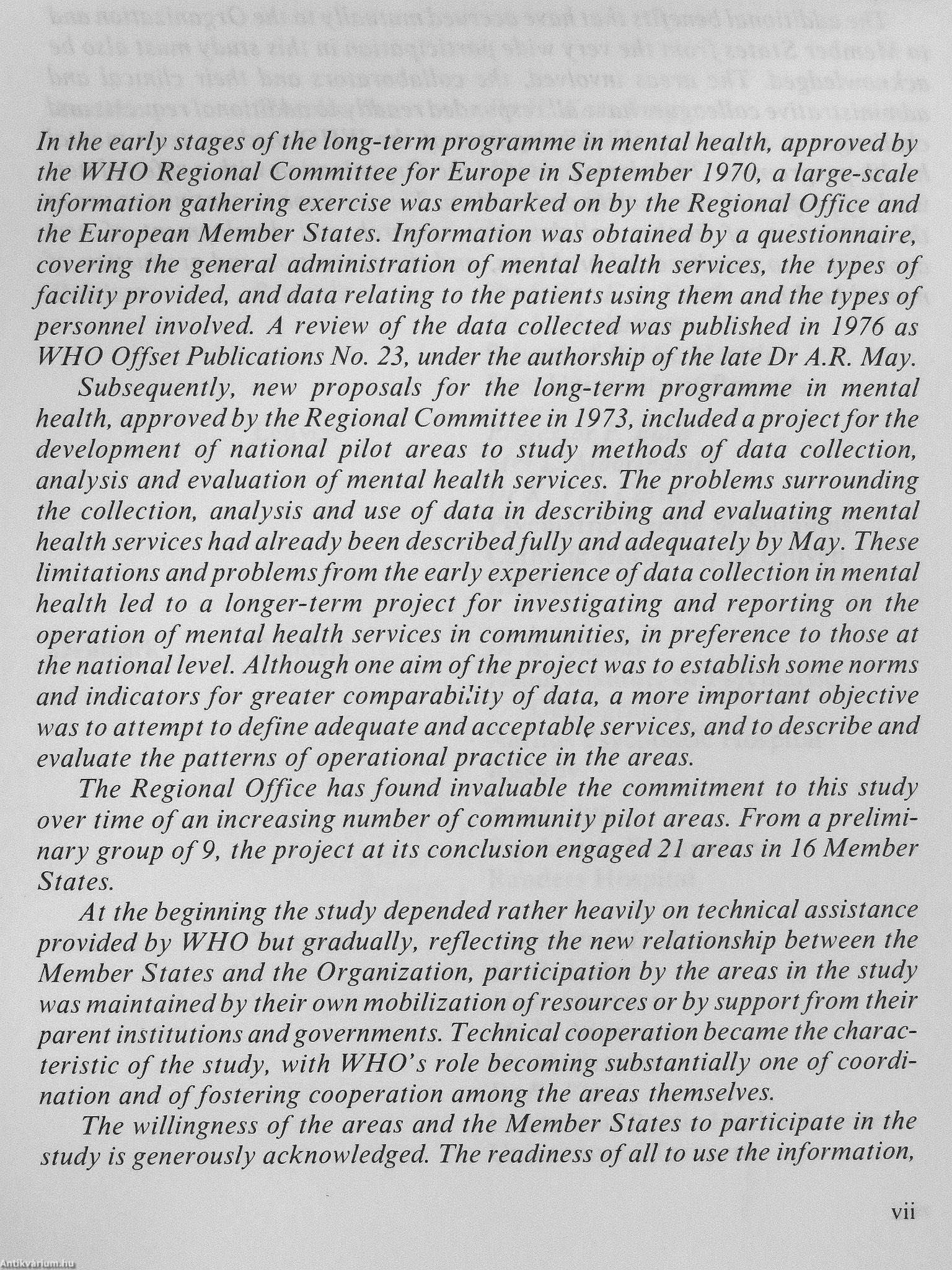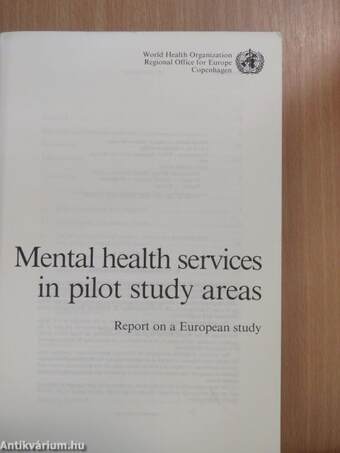1.069.267
kiadvánnyal nyújtjuk Magyarország legnagyobb antikvár könyv-kínálatát

VISSZA
A TETEJÉRE
JAVASLATOKÉszre-
vételek
Mental health services in pilot study areas
Report on a European study
| Kiadó: | World Health Organization Regional Office for Europe |
|---|---|
| Kiadás helye: | Koppenhága |
| Kiadás éve: | |
| Kötés típusa: | Fűzött papírkötés |
| Oldalszám: | 578 oldal |
| Sorozatcím: | |
| Kötetszám: | |
| Nyelv: | Angol |
| Méret: | 24 cm x 16 cm |
| ISBN: | 92-890-1046-0 |
| Megjegyzés: | Fekete-fehér ábrákkal. További szerzők a kötetben. |
naponta értesítjük a beérkező friss
kiadványokról
naponta értesítjük a beérkező friss
kiadványokról
Előszó
TovábbFülszöveg
Many European countries have a long tradition of mental health care
delivered through a variety of specialized institutions,
but information on the subject is sketchy.
In the 1976 publication Mental health services in Europe
(WHO Offset Publications No. 23) the late Dr A.R. May
showed that reliable information was not at all readily available.
Imprecise terminology and statistics made comparison
between countries impossible. To close this gap, 21 pilot study areas
in 16 countries were surveyed in depth.
The development of community mental health services today
plays a major role in the provision of psychiatric care.
Anti-psychiatric movements, changing economic conditions,
and changing knowledge and opinions concerning the treatment of
psychiatric patients have resulted in an overall trend towards
deinstitutionalization. It is therefore in the interest of
health authorities to be given as clear a picture as possible
of the present state of mental health services... Tovább
Fülszöveg
Many European countries have a long tradition of mental health care
delivered through a variety of specialized institutions,
but information on the subject is sketchy.
In the 1976 publication Mental health services in Europe
(WHO Offset Publications No. 23) the late Dr A.R. May
showed that reliable information was not at all readily available.
Imprecise terminology and statistics made comparison
between countries impossible. To close this gap, 21 pilot study areas
in 16 countries were surveyed in depth.
The development of community mental health services today
plays a major role in the provision of psychiatric care.
Anti-psychiatric movements, changing economic conditions,
and changing knowledge and opinions concerning the treatment of
psychiatric patients have resulted in an overall trend towards
deinstitutionalization. It is therefore in the interest of
health authorities to be given as clear a picture as possible
of the present state of mental health services
within the European Region.
This book reveals surprisingly wide differences in the patterns of care
and in the chronicity of cases followed up for a period of two years
in the various areas. The wide range of alternative treatments
is the result of a combination of factors,
including not only the needs of the patient
but also the established habits of the services involved.
The comprehensive picture provided of the different types of
mental health care will be particularly valuable to those
responsible for planning for the future.
The book shows the wide choice available, and should encourage
health workers and administrators at both local and national levels
to establish reliable information systems
or to improve those that already exist. Vissza
Témakörök
- Orvostudomány > Ideg, elme > Pszichiátria
- Idegennyelv > Idegennyelvű könyvek > Angol > Orvostudomány
- Pszichológia > Pszichiátria
- Pszichológia > Idegennyelvű > Angol
- Orvostudomány > Általános orvosi, egyéb > Egészségügy > Betegellátás
- Orvostudomány > Általános orvosi, egyéb > Idegennyelvű
- Orvostudomány > Ideg, elme > Idegennyelvű
- Orvostudomány > Ideg, elme > Terápia
- Orvostudomány > Orvosi idegennyelvű könyvek > Általános orvosi
- Orvostudomány > Orvosi idegennyelvű könyvek > Ideg, elme
- Szociológia > Szociálpolitika > Egyéb
- Idegennyelv > Idegennyelvű könyvek > Angol > Szociológia > Szociálpolitika > Egyéb
- Idegennyelv > Idegennyelvű könyvek > Angol > Pszichológia
- Orvostudomány > Általános orvosi, egyéb > Egészségügy > Intézmények > Egyéb
- Pszichológia > Szociálpszichológia > Egészségpszichológia > Egyéb




















